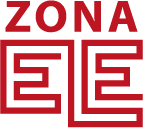1 Uses of un and una. Indefinite article is used referring to any noun within a category of things or persons.
Por el paso de cebra cruza un niño.
¡Mira! una vaca.
Te ha llamado un chico.
Esto es un libro de ejercicios.
La ganadora del premio de novela es una profesora de Murcia.
With materials, it indicates category or something done with that material.
Necesito una tiza.
Podríamos poner un cristal ahumado en esta ventana.
El viento ha tumbado un pino.
Me he cortado con un hierro oxidado.
He comprado un queso de dos kilos y medio.
With nacionalities means specific person from that place.
He conocido a un inglés en la playa.
Ser + indefinite article + negative adjective means the same thing than without indefinite article.
Sois unas tontas. (= Sois tontas.)
Eres un imbécil. (= Eres imbécil.)
2 Unos and unas precede the nouns used in plural referring to singular things.
| Unos pantalones | Unos prismáticos |
| Unas tijeras | Unas vacaciones |
They have the same value than the articles un and una used with singular nouns.
Dame unas tijeras de punta redonda.
Me he comprado unos pantalones tejanos.
3 The impersonal patterns built with hay, había and habrá ndo not usedefinite article; they do use indefinite singular forms, un and una; in plural, without article.
Hay un libro en la mesa.
Hay libros en la mesa.
